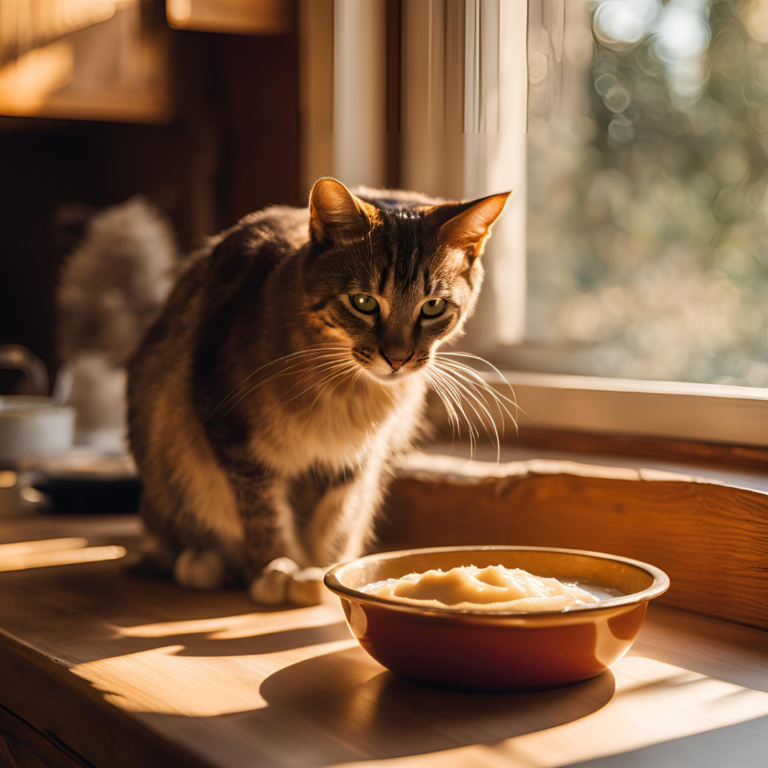Mango is a popular and delicious fruit, and we are often tempted by its pleasant aroma and sweet taste. Additionally, mango contains vitamin A, vitamin C, potassium, and fiber, which are quite beneficial for our health. However, the question is whether cats can eat mango. This query arises because sometimes cats might beg for it as soon as they see a mango, leaving pet owners confused about whether it is actually good or bad for their feline friends. So, let’s find out more about this in detail.
Can cats eat mango?
Yes, cats can eat mango, but only in moderation. Cats are obligate carnivores, so this fruit should not be added to their regular diet. Although mango is not toxic to cats, its high sugar content can cause health problems. If a cat is given a small piece, it is unlikely to cause significant harm. However, if your cat insists on eating mango or if you decide to give your cat mango, always consult a veterinarian.
Is mango good for cats?
Generally, cats are obligate carnivores, so they get all the necessary nutrients from high-quality cat food. While cats can eat mango and it is not toxic to them, it should not be added to their daily diet as it can cause various health problems. Although a cat can eat a few small pieces of mango without significant issues, feeding them more than necessary should be avoided due to the high sugar content, which is not good for them, especially for overweight cats or those with diabetes. Additionally, mango skin can cause digestive problems for cats, so make sure to peel it well before feeding it to your cat. Although mango does not provide the same benefits to cats as it does to humans, as it is rich in vitamins and fiber for humans, cats primarily obtain their essential nutrients from meat. Mango can be a tasty treat for cats but does not significantly contribute to their nutritional needs. If you decide to feed your cat mango, always consult a veterinarian first.

Can cats drink mango juice?
Since mango is safe for cats and they can eat mango, cats can also drink mango juice, but only in small amounts. However, it is not recommended because mango juice often contains added sugars and other ingredients that can cause health problems for cats. Additionally, the natural sugars in mango can cause digestive issues. Therefore, it is advised not to give mango juice to cats. Instead, occasionally offering a few small pieces of fresh mango as a treat is a safer option, and it is unlikely to cause significant problems for the cat.
What happens if a cat eats too much mango?
While cats can eat mango, it should only be in small amounts because mango is not considered a primary food for them. As obligate carnivores, cats get their necessary nutrients from high-quality cat food. We already know that eating a small amount of mango won’t harm a cat, but what happens if a cat eats more mango than necessary? Let’s find out in detail.
Digestive Upset
A cat’s digestive system is not designed to handle large amounts of fruit. Therefore, eating too much mango can cause gastrointestinal issues such as vomiting, diarrhea, and stomach pain. So, cats should be prevented from eating excessive amounts of mango.
Sugar Content
While mango is a safe and non-toxic fruit for cats, it contains a lot of sugar. Excessive sugar intake can lead to obesity, diabetes, and dental problems in cats.
Fiber Overload
Mango also contains fiber. Although a small amount of fiber can be beneficial for cats, excessive fiber can cause digestive problems such as constipation or diarrhea.
Allergic Reactions
Although mango is a safe fruit for cats, it can cause issues for some cats who may be allergic to it. This can lead to symptoms like itching, swelling, and difficulty breathing.
Therefore, to ensure the cat’s safety, it is important to prevent them from eating too much mango. Always serve mango in moderation, and make sure to remove the skin, pit, and any potential allergens. If your cat eats more mango than necessary and you suspect they are experiencing any problems, consult a veterinarian.

How to Safely Feed Mango to Your Cat?
While mango is safe for cats, it does not provide the essential nutrients that cats need. As obligate carnivores, cats obtain their necessary nutrition from high-quality cat food. However, if your cat insists on eating mango or if you decide to feed mango to your cat, it should be given in very small amounts. So, let’s find out how you can safely feed mango to your cat.
First, take a fresh mango. Avoid dried mango as it contains more sugar. Next, remove the seed and peel the mango as these can cause digestive problems for your cat. Then, cut the mango into small cubes, making it easier for your cat to eat. However, remember that you should not feed them more than one piece. You can give this fruit to cats occasionally as a treat, but it is advised to consult a veterinarian before feeding mango to your cat.
What signs should you look for if your cat eats mango for the first time?
If your cat eats mango for the first time, you need to watch for certain signs. Try to keep a close eye on your cat. If you notice symptoms like vomiting or persistent diarrhea, seek help from a veterinarian. Additionally, be vigilant for any signs of breathing difficulties.
Conclusion
Although we know that mango is not toxic for cats, refrain from feeding them excessive amounts of mango, as it is not their primary food. Mango contains a high amount of sugar, which can cause various problems for cats, as previously discussed. Generally, cats do not have a strong preference for sweet tastes, so many cats might not be attracted to mango. However, if your cat insists on eating mango or shows interest, always consult a veterinarian.



